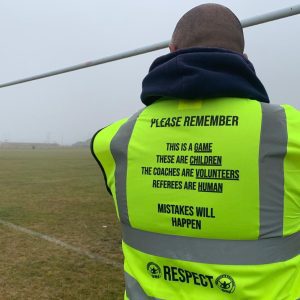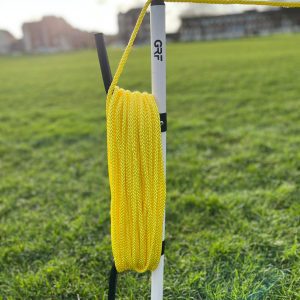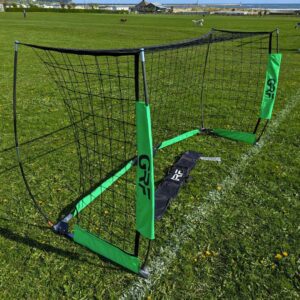Nutrition in children is something that is too commonly forgotten about when it comes to sport and exercise. With obesity rates more than doubling in children in the last two decades it is now more important than ever that we take more of an interest our kids diet. Not only is a good healthy and balanced diet a major contributing factor in how your child performs during exercise but it is also important for general good all round health.
Healthy Eating
All kids need to eat a variety of healthy foods, and athletes are no different. Everybody needs foods that include:
- protein (found in meat, poultry, seafood, eggs, beans, nuts, and dairy foods)
- carbohydrates (fruits, vegetables, and whole grains are the best sources)
- vitamins (as found in fruits and vegetables, for instance) and minerals like calcium (found in dairy products)
Kids need some fat, too, but that’s not usually difficult to get. It’s found in meats, cheeses, nuts, oils, and butter, just to name a few.
Helping your child understand how nutrition facts work plays an important role in reinforcing healthy eating habits.

Eating for Sports.
So what makes athletes different when it comes to eating? The main thing is that athletes might need more food. Why? They burn more calories by practicing and playing so much.
School-age kids (ages 6 to 12) generally need between 1,600 and 2,200 calories a day. An athlete who is more active than a typical active kid might need to eat more. Calorie needs go up during puberty, so that can make a difference, too.
But each kid is different. It’s important to consider how much time they are actually spend being active and training. Attending a football practice can be an intense or light workout, depending on a variety of factors. Do they practice 2 hours a week or 12? It will make a difference.
If you’re interested, you can help your child keep a food journal for a few days to get an idea of how much they’re eating and if they’re getting the nutrients they need. Usually, though, kids do fine just eating a balanced diet of healthy meals and snacks.
Calcium and iron are two important nutrients for kids — especially athletes. Calcium builds strong bones, which are less likely to break under the stress and strain of heavy activity. You’ll find calcium in dairy products, like milk, yogurt, and cheese. Other good sources include dark, green leafy vegetables and calcium-fortified products, like orange juice.
It’s important to include iron-rich foods in your childs diet, such as meat, dried beans, and fortified cereals. Without enough iron, kids might get tired more easily. Girls who have got their periods lose some iron every month through their menstrual flow and active kids lose iron through their sweat — weird!
You’ve probably seen athletes drinking water when there is a break in the action. That’s because athletes need water before, during, and after exercise. When people sweat, they lose water through their skin. Sweating cools the body down, but if you lose too much water this way, you could get dehydrated.
If you get dehydrated you won’t feel well or perform well. Serious dehydration can make you sick enough that you’d need to go to the emergency department for treatment.
Drinking before, during, and after exercising (or an event) is the best way to stay hydrated. Don’t wait until you’re thirsty. Water is the best choice. Fruit juice mixed with water is another refreshing drink. But avoid fizzy drinks, especially caffeinated ones.
When it’s time to practice or play, they will get energy from the foods they’ve been eating all week. But it’s still a good idea to eat well on that day. If they’re going to eat a meal, have it 2 to 4 hours before practice or a game. If your child has a full stomach, their body will need to spend energy digesting food, leaving less for them to use in the game or practice. The best pre-game meal includes carbohydrates and protein for energy, but is low in fat and fiber, which can slow digestion.
But you don’t want them to be hungry either. Bring them a snack, especially for long practices, competitions, or all-day events. Half a sandwich, fresh or dried fruit, or a small handful of nuts are all good snacks. Sports bars, or energy bars, are convenient, but they aren’t necessary for athletes. You can get the same energy from healthy foods.
Make sure they avoid sugary stuff like fizzy drinks or sweets right before they practice or compete. They might get a little energy boost, but it will fade fast, leaving them feeling drained. But eating and drinking the right stuff will help them play their best.
Making the Right Nutritional Choices.
Kids who eat properly are more attentive in school, more physically fit, and have more energy than those who don’t. Making smart nutritional choices during childhood can reinforce lifelong eating habits and help kids grow up to their full potential. So it’s important to know where to start.
The best way to help your kids build healthy habits is to encourage them to:

Tips for healthy eating:
- Eat 3 meals each day – breakfast, lunch and dinner – and have healthy snacks in between, like morning and afternoon tea. This gives your body the fuel it needs to keep going throughout the day and stops you from feeling really hungry at your next meal.
- Eat a variety of foods from the 5 food groups every day – fruit, vegetables, bread and cereals, meat or meat alternatives and dairy foods. This will give you all the energy, vitamins and minerals your body needs.
- Go slow on the sugary and fatty foods, like lollies, soft drink, chips and fried foods. Too many can be unhealthy for you and make you put on weight.
- Drink plenty of water throughout the day.
Sources:
http://pediasure.com/kid-nutrition/child-nutrition-facts








0 Comments